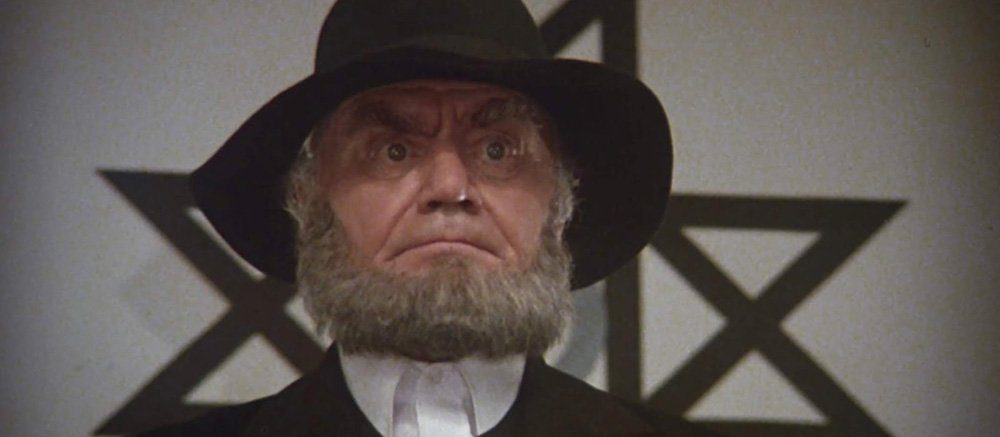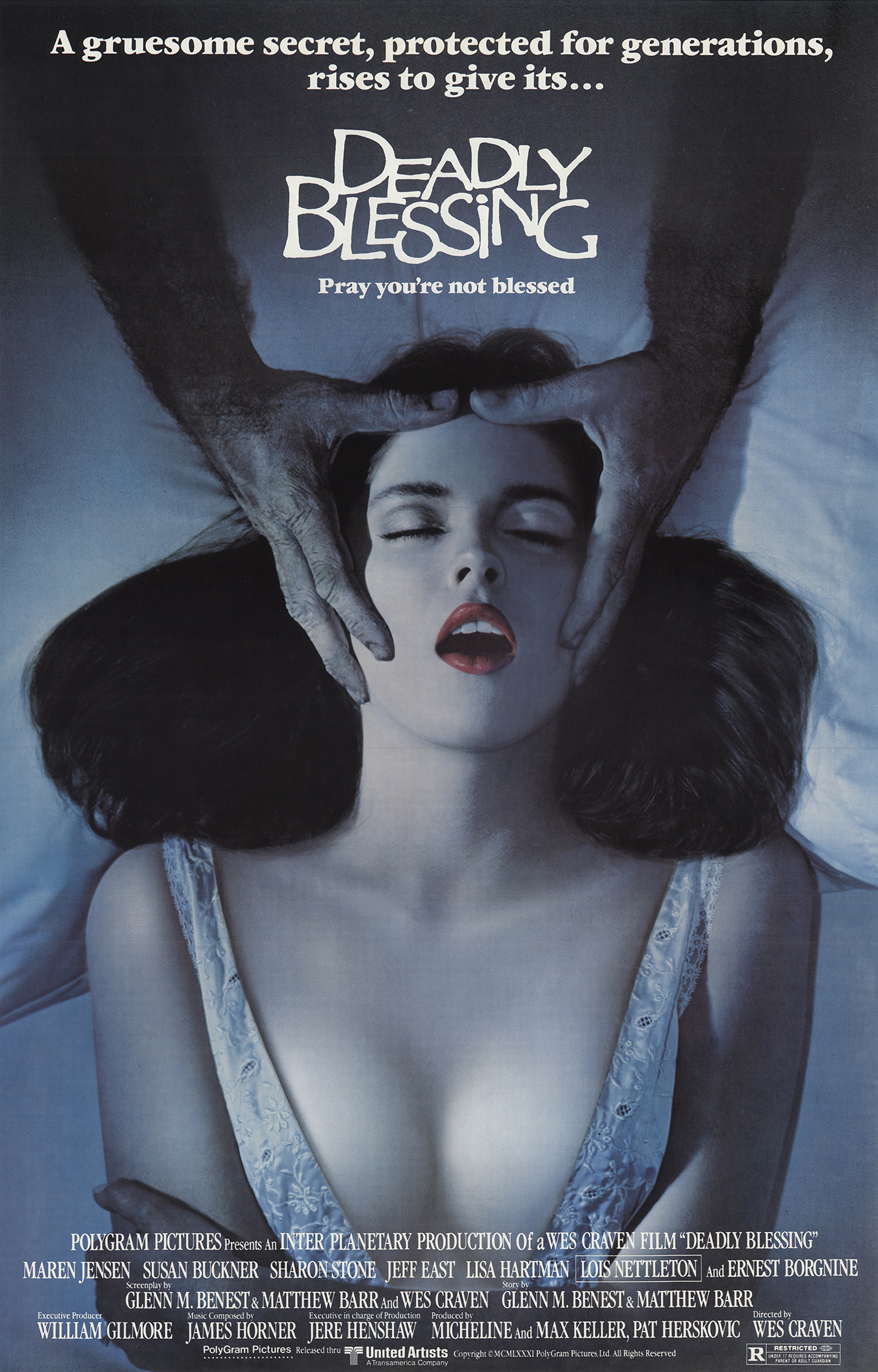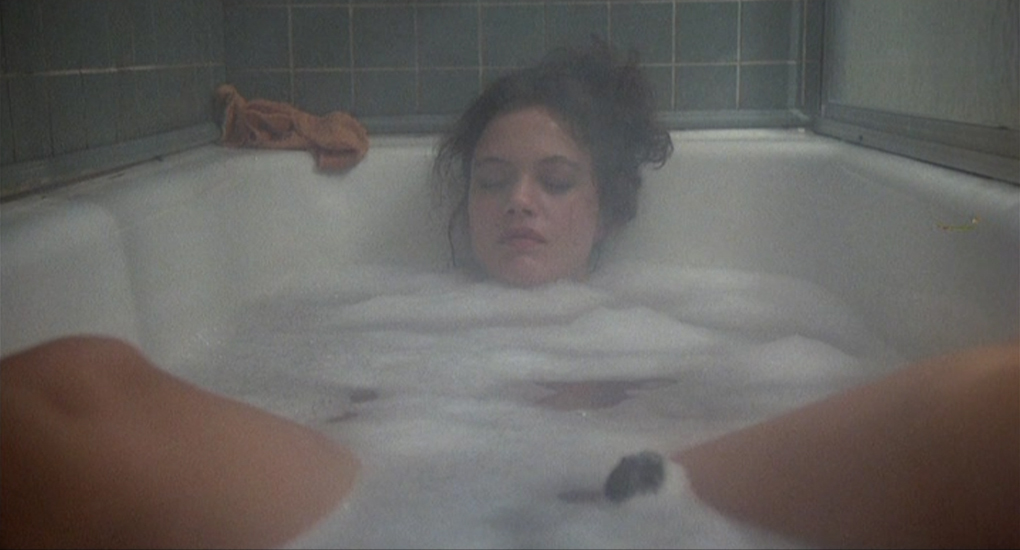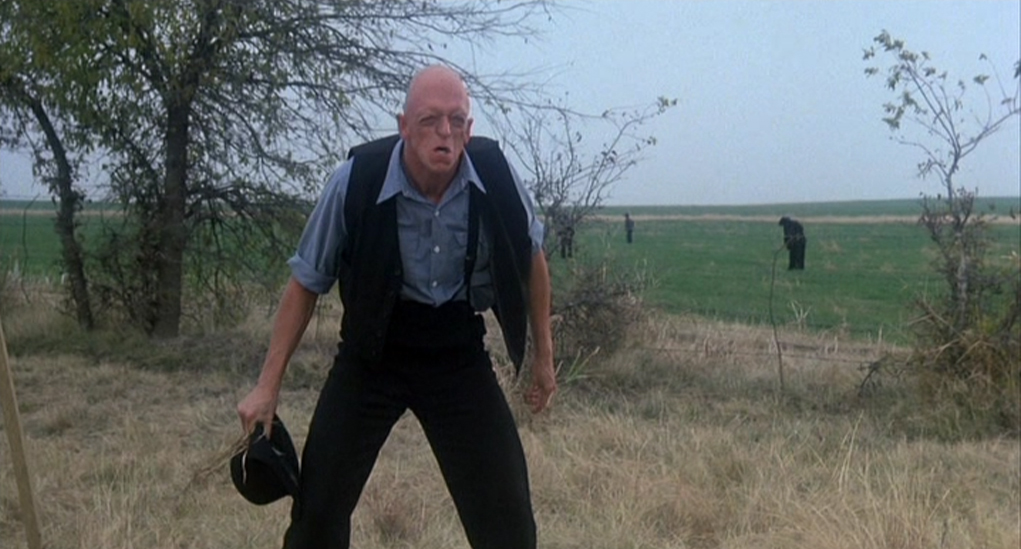

“You are a stench in the nostrils of God!”
Deadly Blessing is a lightweight slasher flick from horror maestro Wes Craven concerning a series of murders that occur amongst a backwoods traditionalist cult. A transitional piece for Craven, it was produced as he looked to move on from his early grindhouse style toward a more polished one. Unfortunately, it gets stuck in a middle ground, lacking the raw sleaze associated with The Last House on the Left as well as the effective scares and gore that would come later. There are a preponderance of disparate ideas that never quite jell and instead render into dead weight, squandering a creepy premise and leaving an energetic ending without a strong buildup to punctuate. Of interest are a handful of rough draft scenes that prefigure their fulfillment in A Nightmare on Elm Street, a young Sharon Stone not yet certain how to comport herself on camera, and Ernest Borgnine’s Razzie-winning turn as a religious elder, but one would be forgiven for skipping this lackluster effort.
The film centers on Martha (Maren Jensen), a headstrong city girl who has moved out to the country with her roughneck husband Jim (Douglas Barr) to live on a dreamy homestead christened “Our Blessing” as they look forward to the birth of their son. Jim, who lasts all of five minutes before he is mysteriously ramrodded by his own tractor, was formerly a member of the Hittites, an austere and patently-heretical-though-ostensibly-Christian group that forces incestuous relations on its younger members and shuns outsiders. According to Lana (Stone), they make the Amish look like swingers. It baffles why a young man who has chosen to ostracize himself from his hermetic community, fleeing to NYC to escape his overbearing father (Borgnine), would choose to live next door to them with his new bride, but what can you do? They try to live in peace, but their idyllic existence amidst the sprawling fields and quaint farms is for naught. Craven regular Michael Berryman is a constant nuisance as William, an overgrown child who harasses all outsiders with taunts of “Incubus”—the demon that they believe infects all non-Hittites. Jim finds the word scrawled in crude red paint inside of his barn and is in the midst of painting over it when he is killed by an unseen force.

After Jim’s funeral, two of Martha’s friends, Lana and Vicky (Susan Buckner), come to stay at the farm for a while to see her through the mourning process. Despite their plea that she abandon the homestead and return to the city, she elects to stay on, believing that the Hittites had a hand in Jim’s death. When William is found hanged by the neck, the Hittites in turn believe that Martha is the culprit. Complicating matters are Louisa (Lois Nettleton) and Faith Stohler (Lisa Hartman), a non-Hittite mother and daughter who live nearby and are exceedingly friendly toward Martha. Once these pieces are roughly corralled into place, a series of ominous encounters and visceral scares ensue that showcase Craven’s penchant for iconic flourishes. There are recurring lucid nightmares, a scene involving a snake in a bubble bath (which seems to take a cue from Shivers), and another with a spider and an open mouth.
After a couple of gory outings to begin his career, Deadly Blessing sees Craven moving toward a more restrained style that favors atmosphere over bloodshed. And while there are several individual moments that catch the eye, the numerous scenes of drab dialogue and tangential storylines cause the whole to suffer greatly. A romance between Jim’s brother John (Jeff East) and Vicki is particularly glaring, although the resulting double murder by John’s cousin/fiancée is satisfying and their meeting in the city provides Craven the opportunity to flex as a theater is playing his own Summer of Fear. The inexperience of the cast also detracts and gives the whole thing a flimsy soap opera texture that’s only disrupted by a few voyeuristic sections. Far from essential viewing, it remains a historical curiosity because it features young talent on the cusp—Sharon Stone, who would garner acclaim in Scorsese’s Casino; composer James Horner would win an Academy Award for Titanic and receive consistent nominations for his work; and the instantly recognizable Michael Berryman has had a long and fruitful career within the horror genre.

And of course Craven himself would go on to acclaim once he learned to maneuver in the Hollywood system. Raised in a fundamentalist Baptist household, he was forbidden from watching movies as a child (not certain types of movies—but movies in general). His early work was critically dismissed for its brutal violence and sadistic characters, but he wasn’t depraved himself, he was simply grating against his strict upbringing and stirring the pot in retaliation. Deadly Blessing lacks the brutality he had made a name on, but it is perhaps his most personal work, as it brings his professional sensibilities into tension with the strictures of his upbringing. However, it chooses not to interrogate the Hittites’ belief system and way of life, but simply uses them as tropes.
Placed in its chronological context, Deadly Blessing is clearly a stepping stone for those involved. It is obvious that Craven is in the process of shedding his grungy schlockmeister persona, but he hasn’t yet figured out how to match his talent for staged scares with adequate drama. The reworked script leaves us with a jagged story that does little more than shuffle our aspiring scream queens through a series of inspired scares and lacks the energy and wit of Craven’s best work. A few choice moments will make you squirm but they’re not enough to see us through a feature length film.